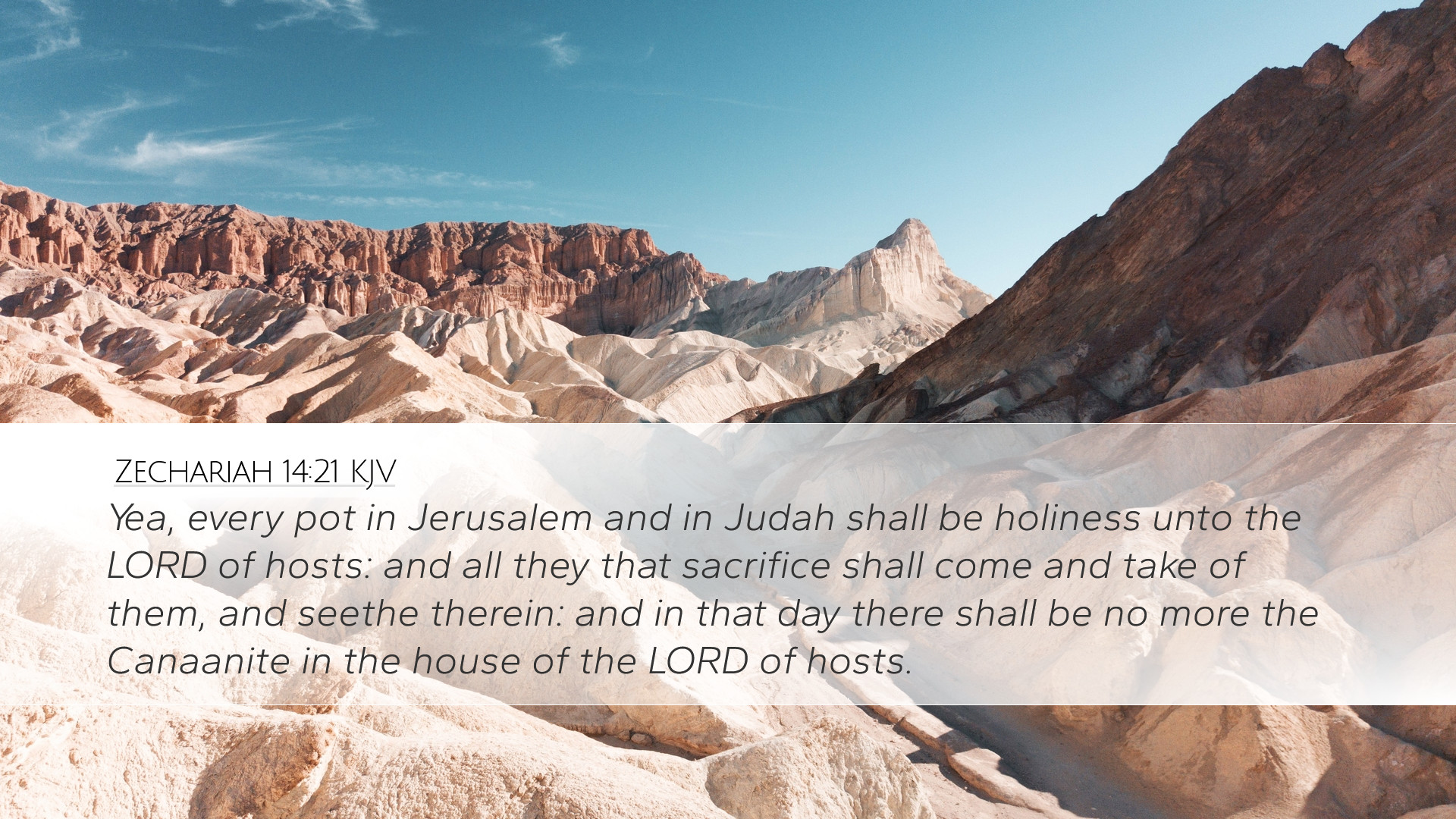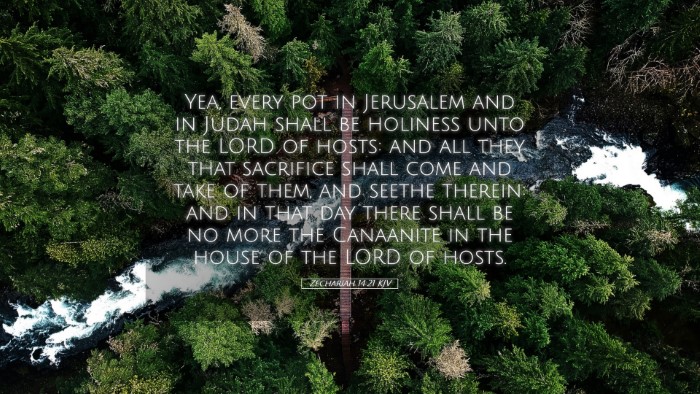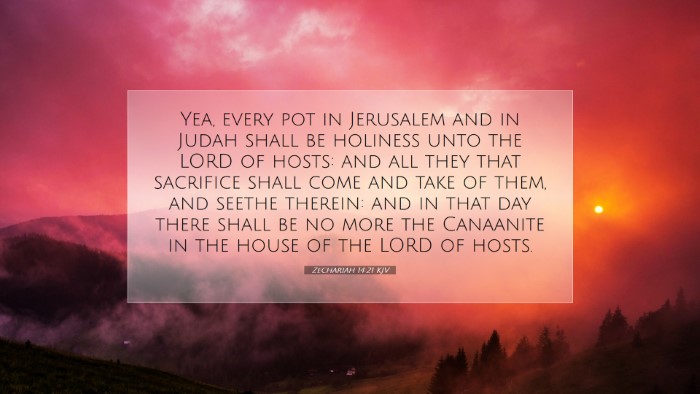Commentary on Zechariah 14:21
Zechariah 14:21 states: "Yea, every pot in Jerusalem and in Judah shall be holiness unto the LORD of hosts: and all they that sacrifice shall come and take of them, and seethe therein: and in that day there shall be no more the Canaanite in the house of the LORD of hosts."
This verse encapsulates profound theological and eschatological themes that resonate with the entirety of Scripture. The imagery of pots being set apart for holiness underscores the transformative work of God within His people and their practices. This commentary draws insights from various public domain theologians to explore its meaning and implications.
Holiness and Divine Transformation
The notion of holiness is central to God's covenant relationship with Israel. Matthew Henry emphasizes that the transformation of ordinary pots into vessels of holiness illustrates God's power to sanctify the mundane for sacred use. This signifies a time when every aspect of life is integrated into worship and service to God.
Further, Albert Barnes notes the significance of every pot being labeled as holy indicates a universal sanctification. In the prophetic vision, every individual and every object in Jerusalem reflects the glory and holiness of God. All activities, even the seemingly mundane ones like cooking, take on a divine importance in the presence of the Lord.
The Worship Context
The command concerning pots points to the sacrificial system where worship was integral to life. Adam Clarke offers a significant insight that in the eschatological fulfillment described in Zechariah, the act of sacrifice is no longer limited to traditional confines. Instead, those who come to offer their worship — whether through their actions or their lives — will find that what was previously designated as ordinary is now associated with holiness.
The Absence of Canaanites
The closing line of the verse refers to the absence of the Canaanite in the house of the Lord, which requires careful consideration. Matthew Henry interprets the Canaanite representation as those not committed to the covenant — outsiders to the sacred community. This exclusion indicates a purified worship context where only those devoted to Yahweh will partake in worship practices.
Albert Barnes elaborates by indicating that in the eschatological vision, there will be a complete separation from those who defile worship practices. The 'Canaanite' becomes a symbol of sin and corruption, signifying the restoration of true worship in a context devoid of iniquity and foreign influences.
Application for The Church Today
The implications of Zechariah 14:21 are significant for contemporary believers, as they challenge the church to consider its purity in worship and practice. It beckons congregations to reflect on whether their communal activities truly honor God. Matthew Henry’s admonition urges believers to be conscious of the sanctity of their actions both in communal worship and individual conduct.
The concept of holiness infused into every aspect of life presented in this text serves as a reminder that living for God goes beyond the walls of the church. Albert Barnes succinctly articulates that as believers, we must strive for a life that embodies the principles of holiness and commit ourselves to sacrifices that glorify God, effectively countering the world's influences.
Theological Reflections
From a theological perspective, Adam Clarke underscores that this passage highlights a future promise of divine transformation and glory. It symbolizes the anticipated outpouring of God's Spirit, where God will reign supreme over every facet of existence. The fulfillment of this prophecy is seen as central to the messianic vision, igniting hope in believers for the coming kingdom where God will dwell among His people.
As Zechariah envisions a world without compromise, the presence of the Lord is magnified above all else. Thus, the challenge presents itself not to be conformed to this world but to be transformed by the renewing of our minds — a theme resonating through both the Old and New Testaments and pressing believers to uphold the covenant with the Holy One.
Conclusion
Zechariah 14:21 encapsulates profound principles of holiness, worship, and divine transformation. Through the insights of Matthew Henry, Albert Barnes, and Adam Clarke, we glean a deeper understanding of the responsibilities that accompany the call to holiness. As we await the ultimate consummation of God's plans, may our lives reflect the fruit of sanctification in every sphere of our existence, anticipating a reality where the glory of the Lord fills all things.


